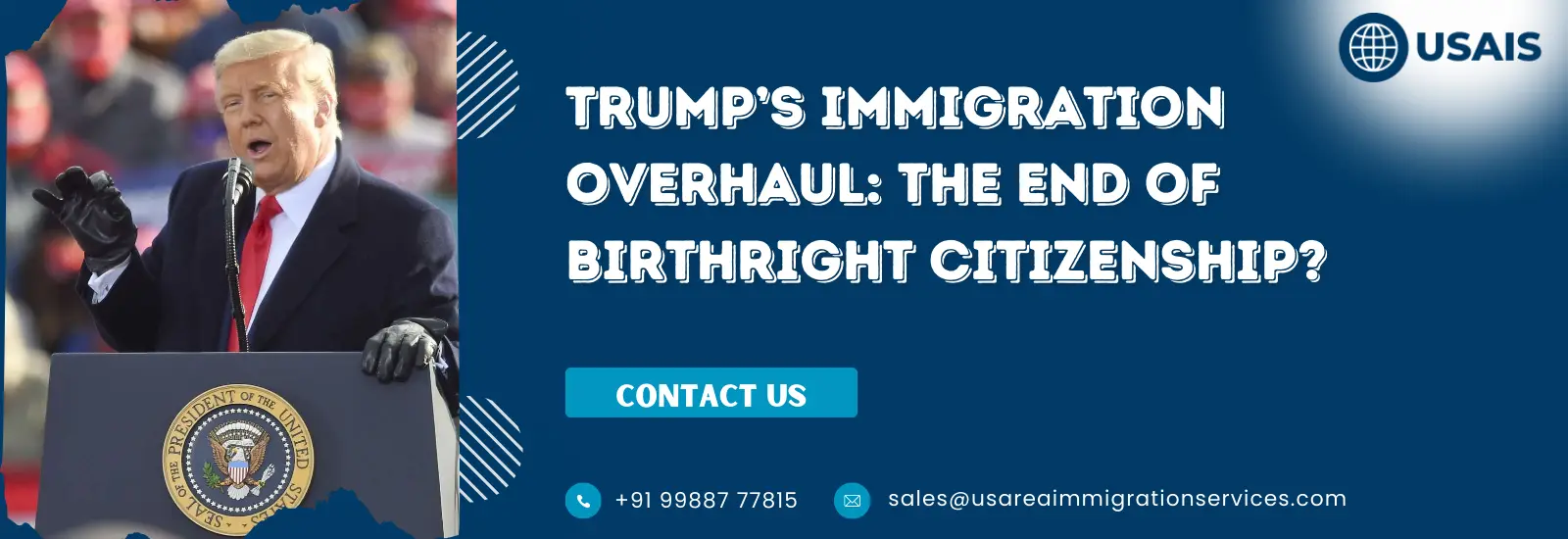Donald Trump again promised to eliminate birthright citizenship as he seeks office in the 2024 elections sparking a lot of controversy. The given policy is the right to be born in US territory, which was created by the 14th Amendment to the US Constitution. Trump points at this as being wrong and or abused, and states he will repeal it through an executive order if given the mandate.
This blog delves into what birthright citizenship is, what Trump said and promised on this and the legal, social and political concerns associated with this topic.
Trump’s Promise: A Bold Claim
During his campaign for the presidency, Trump promised to remove plenary citizenship by changing the constitution in his first week of the presidency through a law. He says the current interpretation of the 14th Amendment opens a loophole that encourages unlawful migration and ‘birth tourism’ where foreigners travel to the US to give birth to their children to get their citizenship.
The considered changes to the rules of citizenship would mean that a child born in the United States would only be a citizen if at least one parent was a citizen or had a green card. He says that this would bring back authority, reduce immigration and help save the taxpayers money.
Trump’s Case Against Birthright Citizenship
Trump has been publicly against birthright citizenship for a long time and it paved the way for the undocumented immigrants and the so-called “birth tourists”. Here’s a breakdown of his arguments:
Encouraging Illegal Immigration
Trump avers that offering American children birthright citizenship encourages aliens without proper documents to cross the border. When families have their children naturalized, they can qualify for public assistance as well as known avenues through which the parents could be sponsored in the future.
Tackling Birth Tourism
Some pregnant women travel to the United States, and the practice is commonly referred to as birth tourism, because of the desire to have their baby born as a citizen of the USA. This matter is likened by Trump as a very unadvisable strategy and very much detrimental to national assets.
Reducing Public Resource Strain
Trump wants to prove that the children who have been brought to the USA by their parents of illegitimate status are a burden to the country as these families make little or no contribution to the economy, yet they take a lot of money from the public domain.
Restoring National Sovereignty
If presented as an effort to strengthen the sovereignty of the United States, the proposed changes in the policy are in Trump’s view a way to move immigration away from the system of granting citizenship based on a person’s birthright and toward one based on meritocracy.
Can Trump End Birthright Citizenship?
The 14th Amendment Debate
The Fourteenth Amendment has been understood for more than a century to provide for birthright citizenship. The famous United States Constitutional case of 1898 United States Vs Wong Kim Ark lent to such an interpretation; that children born in the United States, though their parents are aliens, would be considered natural-born citizens.
Trump’s plan rests on the assumption that an executive order can change the meaning of the words “subject to the jurisdiction” of the United States — the phrase used in the amendment. Nevertheless, the majority of constitutional lawyers believed that modifying that perception can only happen through the amendment of the constitution or the enactment of federal laws, not an executive order.
Legal Hurdles
If Trump reinvents the executive order it will be challenged in court the very day it is signed. It would be unenforceable; they’ll just take it to court and it becomes a constitutional question – how do they interpret this?
Congressional and State Opposition
The Constitution can only be altered by an act of Congress and passage by three-fourths of the various states and as such is a highly political process. Some of the biggest immigrant-popular states will not endorse such a move.
Impact on Green Card Pathways
There are also serious implications that the end of birthright citizenship would come with, one being the cancellation of green card chances for many immigrants. At the moment, a child born in the United States to non-American citizen parents has the right to petition for his or her parents as soon as they reach their 21st year. If birthright citizenship is eliminated:
- These children would burden parents who would lose one of the most important paths to legal residency.
- This will be especially hard on families who are a combination of citizens and people of other nationalities, to assimilate legal status.
Families that feel that a child’s citizenship status will eventually assist the entire family reach normal may find themselves in an even more unclear or illegal situation if birthright citizenship is eliminated.
Conclusion
Donald Trump’s declaration to abolish birthright citizenship has brought back a highly contentious issue. Though his followers call it an approach to address calling for increased immigration control measures, critics decried its effects which range from cancellation of green card opportunities to producing stateless children.
Of course, when the 2024 election approaches, this issue will most certainly not fade into the background; it will remain a critical problem that affects not only the United States immigration policies, but also the meaning of Americanism.

